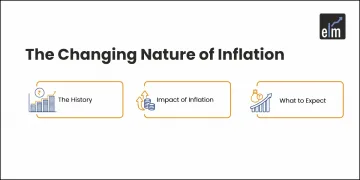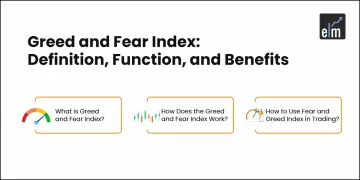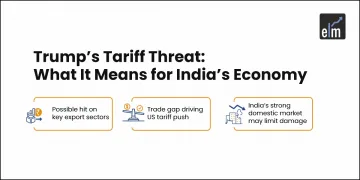| Table of Contents |
|---|
| Importance of Post Trade analysis |
| The process of doing the post-trade analysis |
| How post trade analysis help in becoming successful Trader? |
| Conclusion |
We learn from our mistakes, we gain experience from our past actions and learn from their reactions. That is how we develop ourselves day by day.
The same theory is applicable even if you are a trader. In this field, you will rarely find any trader who has not faced any loss or has never had a bad day with trade. They have developed themselves as a knowledgeable trader every time after learning from their mistakes every day.
But how do they do it?
It is simple, by evaluating their trades. We know, that we give too much importance to entry or exit decision, but during the moment, many a times, we overlook some common mistakes thus create blunders. Later these common mistakes lead us to wrong decisions like- Trading is not for me, I am never going to trade again, Market is playing with me etc.
These common mistakes can be resolved only if you focus on rectifying mistakes after noticing it. Yes, we need to evaluate our each and every day trades. These self- evaluations will help us to become a better trader in the long run. In this article, we are going to share with you the importance of post-trade analysis and right way of doing it.
Importance of Post Trade analysis:
To ease your understanding of post-trade analysis we have divided it into some parts. Go through each of them to understand it clearly.
Strategy:
The strategy is one of the most important factors while analyzing your post trades. Strategies vary depending on the market scenario. So, in the post-trade analysis, we have to look for execution of having applied the perfect strategy or not.
It may also happen that at the time of analyzing we find out that there was a better strategy which could have been applied. Learn options strategy from scratch so we can improve our understanding of different strategies and can have better knowledge of its execution in the Market.
Timing the entry and exits:
Just like finding out the perfect strategy, it is also important to perfectly time our entry and exits. Especially for the novice traders, analyzing the entries and exits is very important.
Fear of losing the money or opportunity loss plays the main role while we take an entry/exit decision. Because of this fear factor sometimes we miss great trades which we were confident about and sometimes we exit from a good trade too early. Is it not?
Learn basics of trading with Technical Analysis Made Easy course by Market Experts
While analyzing the trades always watch out for your entries and exits. This will help you in analyzing where your trade went wrong and you can improve your decisions after finding a better solution to it.
Trading Psychology:
Psychology is a big player in the field of trading. Before taking a trade we go through lots of emotional trauma like fear of losing the money, or will the trade go as per my prediction, or where should I exit etc. Actually, these types of thoughts affect our trading decisions and because of that sometimes we lose a winning trade.
How to overcome this? Honestly, you cannot get rid of these emotions; after all, we are all human beings. But one thing we can do to mitigate this problem is to devise good strategies.
Make a process before taking any entry/exit decision, this process will help you to overcome the emotional problem while trading. Set some conditions for taking an entry, do the same while exiting from a trade. These pre-defined conditions will help you to negate the emotional roller coaster.
The risk to Reward:
The risk to reward is the key factor in trading, without the risk to reward it is nearly impossible to make money in trading. If you follow rules of trades and calculate your risk to reward, there is a chance you will make money even if you lose in 50 percent of your trades. But while trading we forget to calculate the risk to reward, that is why even after making 80 percent correct trades we still lose money.
We always try to catch each and every opportunity in the market, which leads us to neglect the calculation of risk to reward. Trading is not about just jumping into a trade whenever possible, it is about self-discipline and also efficient money management.
The process of doing the post-trade analysis:
So far we have understood the importance of Post-trade analysis. Now let’s discuss the process of doing the post-trade analysis.
We can start by creating an excel file. In the excel file make provision for reason of entry and exit, Stop loss for the trade, possible risk to reward, the actual risk to reward, Entry price, target price, and exit price.
Fill the entry, possible risk to reward, target and the stop loss once the trade is initiated. After the trade is finished fill the rest.
Another important factor we need to mention here is to try and attach charts with the excel sheet and if possible mark your entry and exits on the chart so that you can understand them more easily.
This process will help you to analyze your trades perfectly and you will easily be able to identify your mistakes.
How post trade analysis help in becoming successful Trader?
We learn from our mistakes right? Post-trade analysis helps us to identify our mistakes and rectify it. At the time of post-trade analysis, we come across various mistakes which we did intentionally or unintentionally while we were trading (like wrong strategy, panicking, not using stop loss etc.). The evaluation of our trades helps us to correct these mistakes so that we can trade better in the future.
Conclusion:
A post-trade analysis is as important as taking a good trade. This is an integral part of trading so never ignore this. No matter how many books you read, how many trades you take; if you do not analyze your trades on a regular basis you will not be able to improve yourself as a trader. Learn from your mistakes, they are the best teachers.
Want to make yourself skilled? Join our stock market courses online in hindi now!
In order to get the latest updates on Financial Markets visit Stockedge






